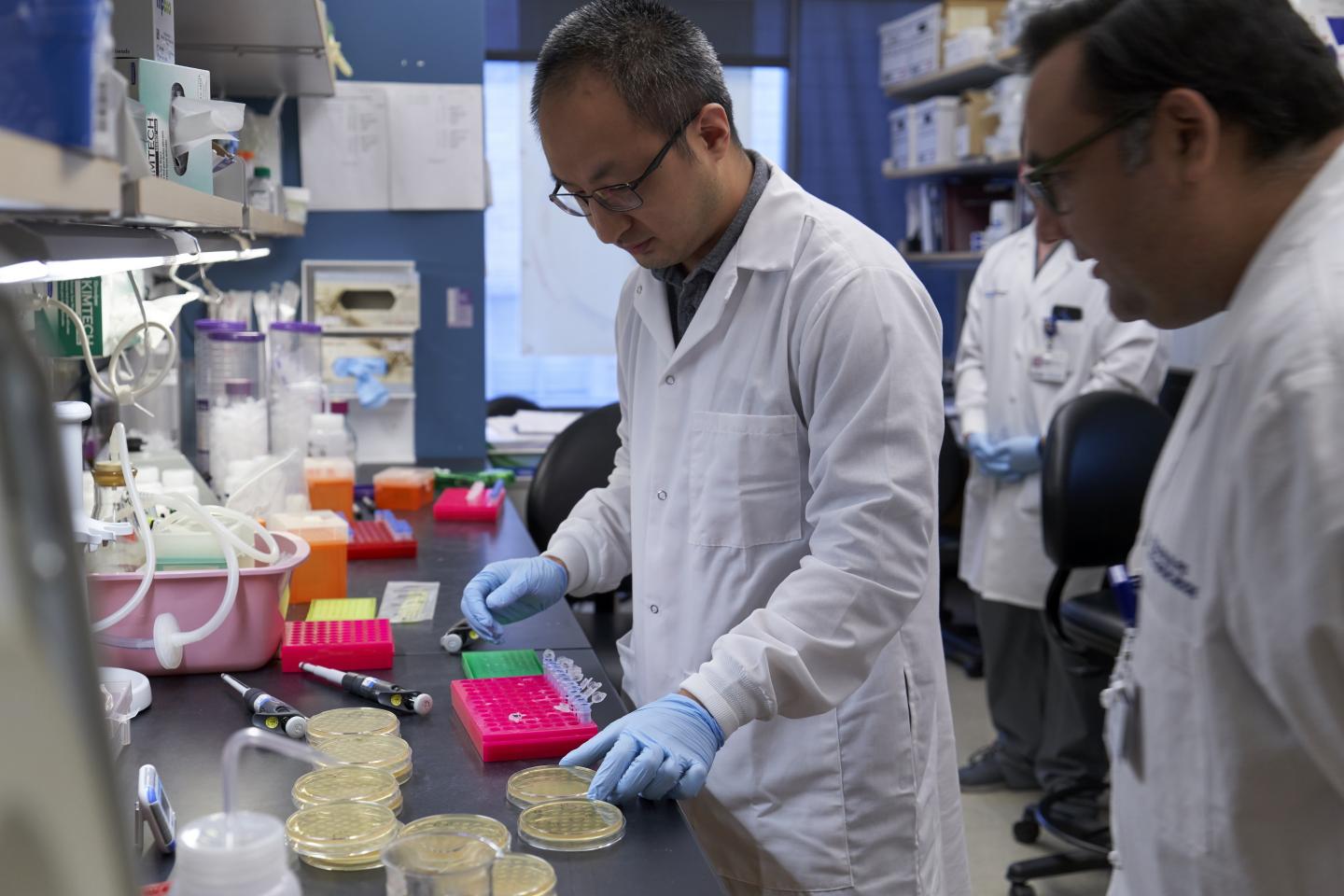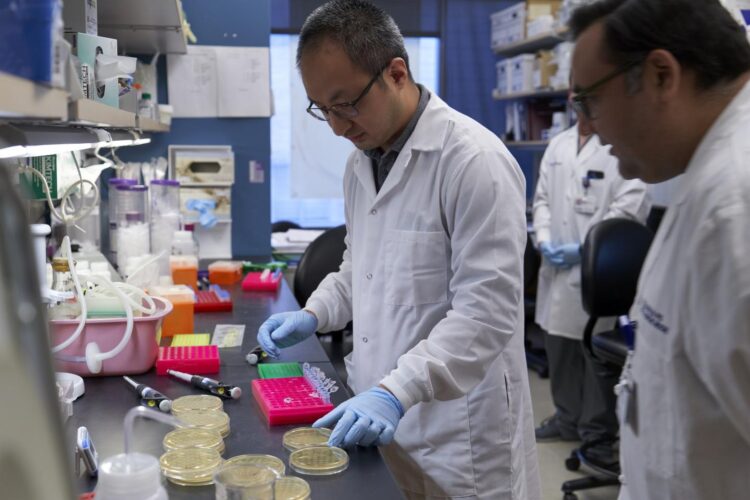American Journal of Pathology publishes efficacy results from Houston Methodist clinical trial

Credit: Houston Methodist
HOUSTON-(Aug. 12, 2020) – A preliminary analysis of an ongoing study of more than 300 COVID-19 patients treated with convalescent plasma therapy at Houston Methodist suggests the treatment is safe and effective. The results, which appear now in The American Journal of Pathology, represents one of the first peer-reviewed publications in the country assessing efficacy of convalescent plasma.
From March 28, when Houston Methodist became the first academic medical center in the nation to infuse critically ill COVID-19 patients with plasma donated from recovered patients, research physicians have used the treatment on 350 patients. The study tracked severely ill COVID-19 patients admitted to Houston Methodist’s system of eight hospitals from March 28 through July 6.
These latest results from Houston Methodist that now measured medical effectiveness offer valuable scientific evidence that transfusing critically ill COVID-19 patients with high antibody plasma early in their illness – within 72 hours after hospitalization proving most effective – reduced the mortality rate.
The study, titled “Treatment of COVID-19 Patients with Convalescent Plasma Reveals a Signal of Significantly Decreased Mortality,” was led by principal investigator Eric Salazar, M.D., Ph.D., assistant professor of Pathology and Genomic Medicine with the Houston Methodist Hospital and Research Institute and corresponding author James M. Musser, M.D., Ph.D., chair of the Department of Pathology and Genomic Medicine at Houston Methodist.
“Our studies to date show the treatment is safe and, in a promising number of patients, effective,” Musser said. “While convalescent plasma therapy remains experimental and we have more research to do and data to collect, we now have more evidence than ever that this century-old plasma therapy has merit, is safe and can help reduce the death rate from this virus.”
The research team found that those treated early in their illness with donated plasma that has the highest concentration of anti-COVID-19 antibodies are more likely to survive and recover than similar patients who were not treated with convalescent plasma. Patients with a history of severe reactions to blood transfusions, those with underlying uncompensated and untreatable end-stage disease and patients with fluid overload or other conditions that would increase the risk of plasma transfusion were excluded.
The patients were tracked for 28 days after plasma transfusion and compared to a control group of similar COVID-19 patients who did not receive convalescent plasma. An observational propensity score-matched analysis was used to balance the characteristics of participants and allow for an objective interpretation of the results at this stage.
Several studies have measured safety, showing that the more than 34,000 COVID-19 patients in the U.S. who have received plasma transfusions for COVID-19 experienced minimal adverse effects.
###
In addition to Musser and Salazar, other collaborators from Houston Methodist on this study were Paul A. Christensen, Edward A. Graviss, Duc T. Nguyen, Brian Castillo, Jian Chen, Bevin Valdez Lopez, Todd N. Eagar, Xin Yi, Picheng Zhao, John Rogers, Ahmed Shehabeldin, David Joseph, Christopher Leveque, Randall J. Olsen, David W. Bernard, and Jimmy Gollihar of the US Army Research Laboratory-South, University of Texas Austin.
This study was supported by funding from the Fondren Foundation, Houston Methodist Hospital, Houston Methodist Research Institute and Houston Methodist Infectious Diseases Research Fund.
The American Journal of Pathology, an Elsevier journal, is the official journal of the American Society for Investigative Pathology and publishes high-quality original research reports, reviews and commentaries related to the molecular and cellular basis of disease.
For more information: Treatment of COVID-19 Patients with Convalescent Plasma Reveals a Signal of Significantly Decreased Mortality. The American Journal of Pathology. (online/in press Aug. 11, 2020) E. Salazar, P.A. Christensen, E.A. Graviss, D.T. Nguyen, B. Castillo, J. Chen, B.V. Lopez, T.N. Eagar, X. Yi, P. Zhao, J. Rogers, A. Shehabeldin, D. Joseph, C. Leveque, R.J. Olsen, D.W. Bernard, J. Gollihar and J.M. Musser. DOI: https:/
Media Contact
Lisa Merkl
[email protected]
Related Journal Article
http://dx.





